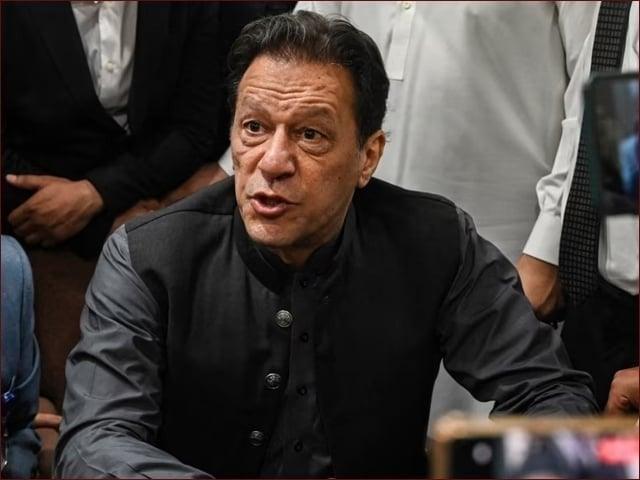Imran Khan, founder president of Pakistan Tehreek-e-Insaf (PTI), has issued a firm directive to his party to avoid any compromise on the issue of prisoner release as talks with the government near.
Imran’s message came during a meeting with two members of the PTI negotiation committee, lawyer Ali Zafar and Suleman Akram Raja, in Rawalpindi’s Adiala Jail, Express News reported.
The meeting, held ahead of the second round of talks scheduled for today, was a critical discussion to finalize PTI’s strategy.
Suleman Akram Raja, who spoke briefly to the media after the meeting, reaffirmed the party’s position. “We remain firm in our position and remain hopeful for the success of the negotiations,” he said.
After the meeting, the two committee members left the jail to prepare for the next round of negotiations.
Imran Khan’s clear instruction to the committee was not to give in to any pressure regarding the release of prisoners, a key point in the ongoing political dialogue.
This next round of negotiations is expected to be pivotal.
The first round of talks, which took place on December 23, concluded with both sides agreeing to continue discussions. Today’s meeting will follow that initial agreement, where the government committee will meet again with PTI representatives to try to reach a resolution.
The government team is led by Deputy Prime Minister Ishaq Dar and includes key figures such as Senator Irfan Siddiqui, Home Minister Rana Sanaullah and others.
The PTI negotiating committee is headed by former National Assembly Speaker Asad Qaiser and includes party leaders such as Ejaz Chaudhry, Hamid Raza and Raja Nasser Abbas.
Earlier today, clemency petitions filed by 19 people convicted for their involvement in the May 9 protests were approved, Inter-Services Public Relations (ISPR) announced in a statement on Thursday.
“After the promulgation of sentences for those convicted of the May 9 tragedy, they have exercised their right of appeal and have asked for clemency/remission of their sentences,” the army’s press wing said.
The ISPR further said that a total of 67 convicts had filed mercy petitions, and 48 of these petitions were processed before the appellate courts. He added that the petitions of 19 convicts had been accepted “on purely humanitarian grounds, in accordance with the law.”
“All will be released once the procedural formalities have been completed,” the statement continues.
The press release also mentions that the clemency petitions of the remaining convicts will be decided in due course after the legal process. He stressed that all convicts retain their right to appeal and seek other legal remedies under the law and the constitution.
“The remission of sentences is a testament to the strength of due process and fairness, ensuring that justice is done taking into account the principles of compassion and mercy,” the ISPR concluded.
In December, military courts sentenced 60 more civilians to prison terms for their role in violent attacks on military installations during the national unrest on May 9, 2023.
The sentences come just days after the ISPR announced that 25 civilians had been sentenced to prison for their participation in the same events.
The individuals have been convicted for their involvement in violent attacks on key military and government installations, including the Corps Commander’s House in Lahore, General Headquarters (GHQ) in Rawalpindi, ISI office in Faisalabad and Bannu Cantt, among others. the ISPR. fixed.
“Following the announcement of the punishments on May 9 in light of the Supreme Court’s decision, the General Field Martial Court has promulgated the punishments to the following 60 remaining culprits after examining all the evidence, ensuring the provision of all legal rights to those convicted, completing due process and the corresponding legal procedures,” the statement says.
The statement further emphasized that all sentenced persons have the legal right to appeal, as provided by the country’s laws.




